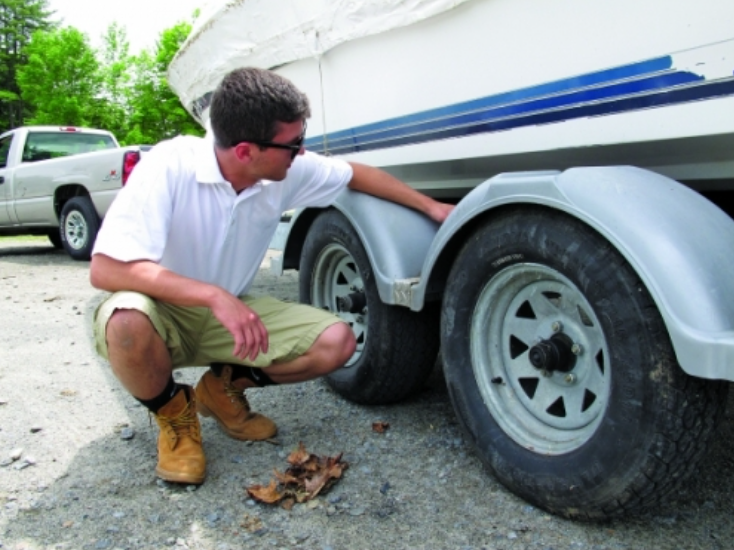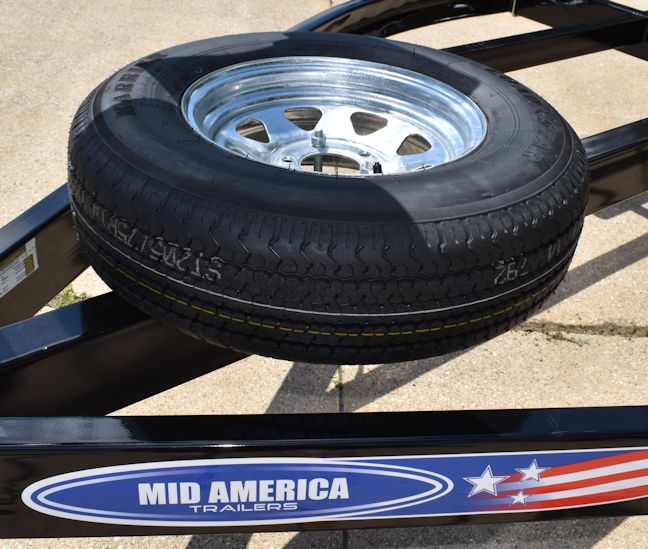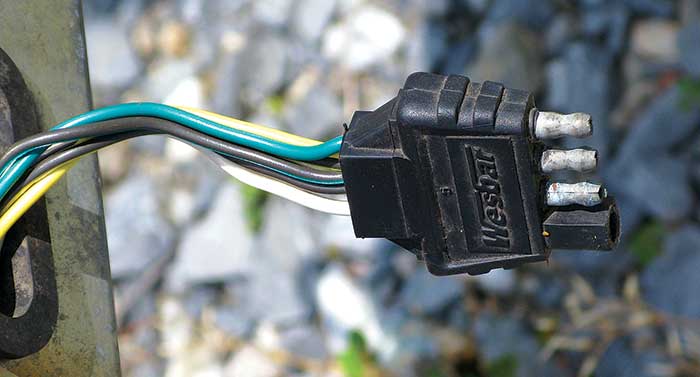Check Out Your Trailer: Take the Time

As an avid trailer boater, you’ve probably spent endless hours in your driveway or at the marina laboring over your pride and joy to keep it looking brand new. But what about the trailer? When was the last time you gave your trailer the once over? On the road, some items may be tough to deal with.
Inside Grease Spots — If the wheel and tire have grease spots on the inside, it’s an indication of a faulty axle seal. A few minutes and an inexpensive part may save you a long, expensive delay on the road.
Tire Pressure — Check air pressure in all tires. This should always be done when tires are cold. The pressure rating can be found on the tire sidewall and should not be exceeded. All tires should have the same pressure.
Spare Tire — If you have a flat tire, a spare saves time. Trailer tires aren’t usually available at service stations and mixing tires (radial and bias) can result in a trailer that’s difficult to control while towing.

Waterproof Lights — Trailer-light manufacturers make waterproof light assemblies. They last longer, especially for those of us who forget to unplug the wire before backing down the ramp. Change the lens gasket whenever a bulb is replaced so water won’t get trapped inside. Many modern assemblies are sealed, so bulb replacement may not be possible.
Check Wiring — You should inspect your trailer’s wiring regularly because it’s exposed to the sun, which can cause it to dry and crack. If it turns brittle, it should be replaced and connections and splices should be waterproofed.
Bad Connection — Have a problem making a good connection at the trailer plug? Try a little contact spray to keep the connectors clean and corrosion-free.

Blinking Lights — If the trailer lights blink while going down the road, you may be grounding at the hitch. Check to make sure the ground wire is secure to the tow vehicle and trailer frame.
Roller Check — Check each roller to make sure the nuts, caps, or pins used to keep it on the shaft are secure and in good condition. These small, inexpensive parts have been known to fail, and, if that happens and the roller falls off, the steel shaft will rub against the hull. Check that all rollers are properly positioned against the hull. Rollers can flip over while backing down a ramp. If undetected, this can cause severe hull damage. For bunks, check the carpets.
Tiedowns — Tie downs, or some other means of holding the stern of the boat firmly to the trailer, are of utmost importance. Although most trailers have springs, few have shock absorbers. Bumps, combined with wind drafts from passing vehicles, can cause the boat to bounce on the trailer, shifting its weight, and possibly resulting in serious damage.